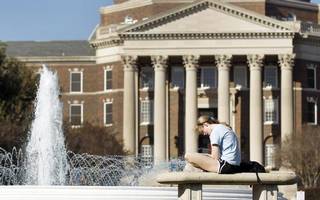Texas Health Presbyterian Hospital Dallas will create a fund to fight Ebola in Africa and pay a cash settlement to relatives of Thomas Eric Duncan, the first person to die of the virus in the United States.
In return, Duncan’s parents and children will waive their right to sue the hospital for bungling his treatment.
Presbyterian may have also bought some good will, as a nephew of Duncan’s who spent the last month lambasting the hospital on national TV, is now lauding it.
“This will conclude, once and for all, all and any claims that any member of the family could legally make with regard to the treatment of Mr. Duncan,” said Les Weisbrod, a lawyer for the family, at a news conference on Wednesday.
Weisbrod spoke alongside Josephus Weeks, Duncan’s nephew and the family’s de facto spokesman. Weeks had hinted at suing Presbyterian since it misdiagnosed Duncan’s Ebola in September, then failed to save him.
“We as human are not perfect. We make errors,” Weeks told reporters. “It’s how you recover from your errors that makes you who you are.”
Under a secret deal nailed down in a courtroom Wednesday afternoon, Texas Health Resources — which runs Presbyterian — will pay an unknown amount of cash to Duncan’s parents and four children.
One of those children is a high school student in North Carolina. Two daughters still live in West Africa, where Duncan caught Ebola shortly before he flew to Dallas to marry Louise Troh.
Troh isn’t part of the settlement. (“I’m not there, but I’m happy for them,” she said by phone.) But she and Duncan have a 19-year-old son at Angelo State University, Karsiah Duncan, who also will get a share of the money.
‘Changed my tone’
As part of the deal, Texas Health will set up and donate to a memorial fund aimed at fighting Ebola in Africa. And it has sent an apology letter to Duncan’s family.
“As part of the healing process, we have again extended our sincere apologies to the family and shared our regret that the diagnosis of Ebola virus disease was not made at the time of Mr. Duncan’s initial emergency department visit,” the hospital said in a statement.
Weeks said that such moves are “why I changed my tone to Presbyterian.”
About a month ago, he made national news with civil rights leader Jesse Jackson at his side. Weeks once told reporters that Presbyterian may have treated his uncle unfairly because he was black.
But on Wednesday, Weeks essentially endorsed the hospital while his lawyer dispelled any notion of racism.
“I believe this facility is an outstanding facility,” Weeks said. “If I got sick and Texas Presbyterian was close to me, I would go there and get treated for it.”
Not fully off the hook
Weisbrod didn’t let Presbyterian off the hook entirely. He accused it of “gross negligence” for sending Duncan home from the emergency room the first time he sought treatment.
But the lawyer noted that state laws would have capped any damages at a $250,000 for the family.
Weisbrod wouldn’t disclose whether the settlement was above or below that amount but said “it will provide for the children and the parents.” The hospital will also waive Duncan’s medical bills.
“Considering the onerous laws we have to deal with, this was the best resolution we could get,” Weisbrod said. “It was as good or better than what we would have gotten if we were trying this case to a jury.”
A crisis management consultant in Washington figured Presbyterian had a lot more to lose at trial than money.
“This is part of a strategy to get it behind you as quickly as you can and take future stories off the table,” said Ernest DelBuono of the Levick public relations firm.
Since the press lambasted its early response to the Ebola case, Presbyterian has tried to win back public trust with TV ads and a full-page apology in newspapers.
“Even beyond the Ebola issue, they are still going to need to retain and attract medical personnel. They want patients coming there for care,” DelBuono said. “The last thing they want to do is have to deal with a lawsuit down the road.”
Staff writer Steve Thompson contributed to this report.











To post a comment, log into your chosen social network and then add your comment below. Your comments are subject to our Terms of Service and the privacy policy and terms of service of your social network. If you do not want to comment with a social network, please consider writing a letter to the editor.